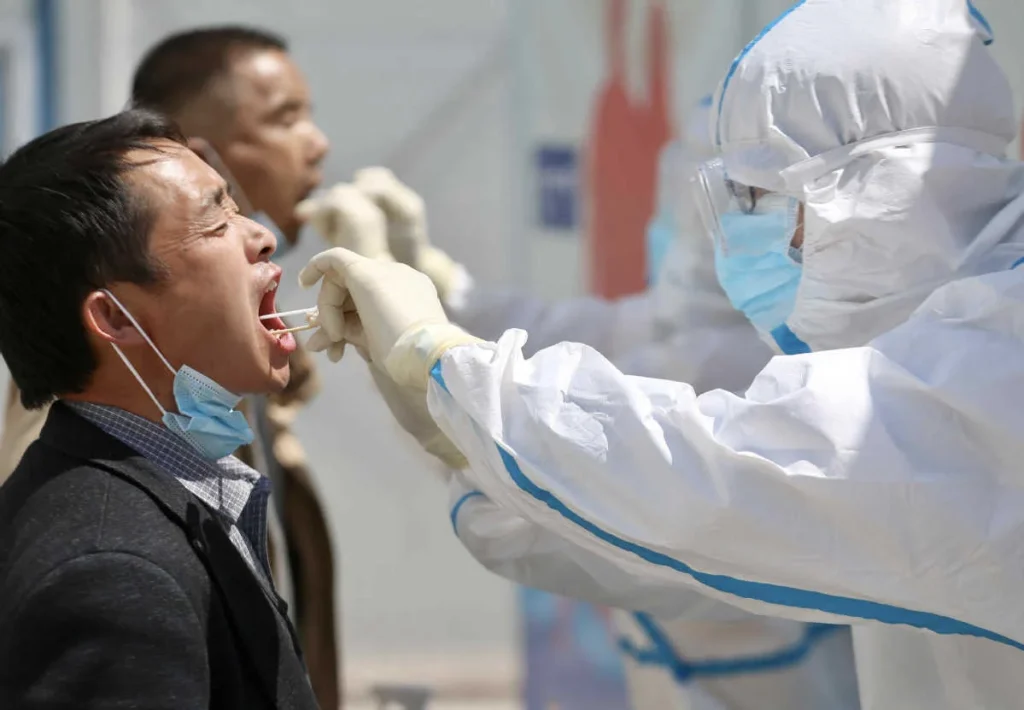On August 1, 2020, China and Australia intensified COVID-19 restrictions as the Delta variant, first identified in India, drove case surges across 132 countries, per WHO. With over 4 million global deaths, WHO’s Michael Ryan warned,
“The virus is evolving, and we must act before deadlier variants emerge.” China locked down over 1 million people, while Brisbane, Australia’s third-largest city, entered a three-day snap lockdown after detecting six Delta cases, per Queensland government records.
China’s Outbreak Response
China faced its widest outbreak since Wuhan in 2019, with over 200 Delta cases across 14 provinces, starting at Nanjing’s airport, per National Health Commission (NHC). NHC spokesman Mi Feng called Delta a “greater challenge” to containment.
Authorities tested 9 million people in Nanjing, canceled flights, and locked down residential areas, per UN data. Despite 65% of China’s 1.4 billion population vaccinated with Sinovac and Sinopharm (50–79% efficacy), lower than Pfizer’s 90%, boosters were considered, per WHO.
Australia’s Lockdown Strategy
In Australia, only 14% of 25 million people were fully vaccinated by August 2020, leaving communities vulnerable, per Australia’s Department of Health. Queensland’s Deputy Premier Steven Miles enforced strict stay-at-home orders for millions in Brisbane and beyond, stating, “We must move fast to beat Delta.” The low vaccination rate, compared to the UK’s 58%, amplified risks, with experts like Alexandra Martiniuk criticizing slow rollouts, per University of Sydney records.
Global and Economic Impact
The Delta variant disrupted global recovery plans. China’s strict measures, while effective, strained its economy, with 2020 GDP growth at 2.3%, per World Bank. Australia’s tourism and aviation sectors, contributing 5% to GDP, faced losses from border closures, per UNCTAD. Both nations’ zero-COVID strategies, successful earlier, struggled against Delta’s transmissibility, prompting calls for higher vaccination rates to avoid prolonged restrictions, per WHO.
Critical Perspective
China’s mass testing and lockdowns, though efficient, raised questions about sustainability and civil liberties, with reports of forced quarantines, per Amnesty International. Australia’s low vaccination rate reflected policy missteps, yet its snap lockdowns mirrored China’s approach, prioritizing control over economic recovery. Both nations faced criticism for prioritizing containment over long-term immunity, potentially delaying herd immunity, per UN health reports.
Path Forward
With Delta spreading rapidly, China and Australia must accelerate vaccinations and refine containment strategies. WHO urged sustained masking, distancing, and hygiene, as Delta’s ability to spread among vaccinated individuals signaled a shifting pandemic, per CDC data. Global coordination and equitable vaccine access remain critical to curb variants and prevent further economic disruption.






